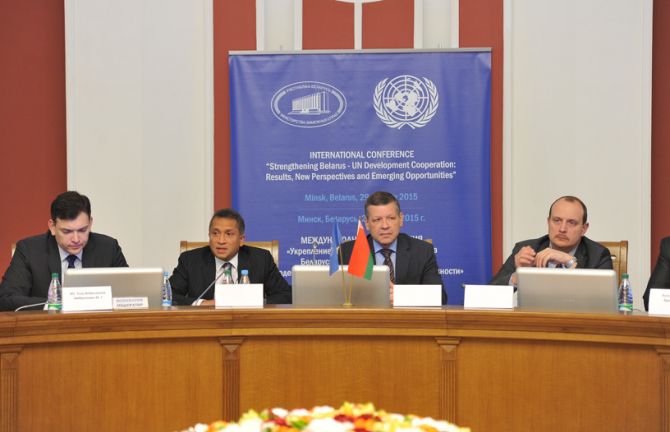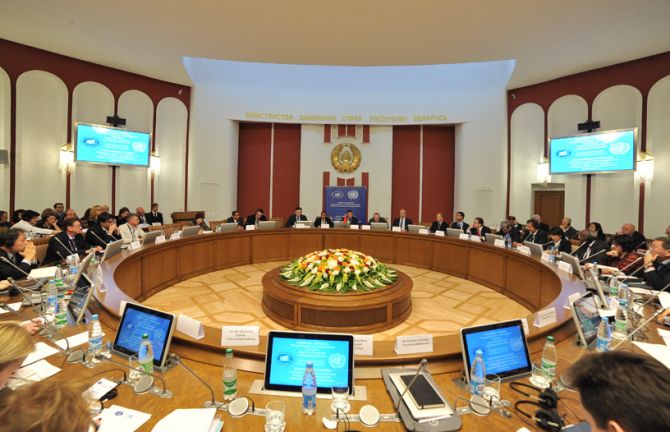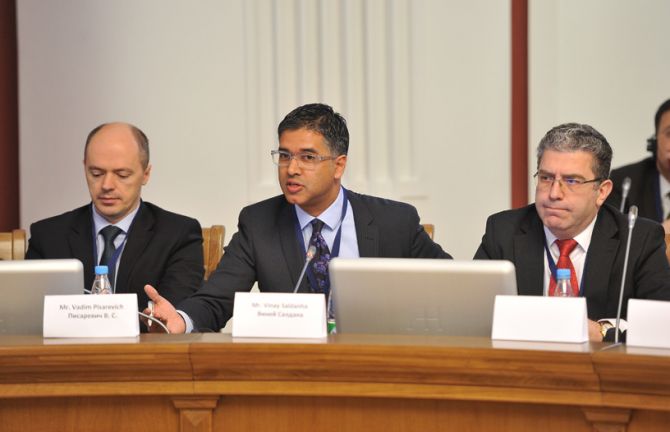



Update
Ending the AIDS epidemic in Belarus: joint commitments and joint efforts
10 February 2015
10 February 2015 10 February 2015Almost 300 stakeholders involved in the provision of international development assistance in Belarus have taken part in an event in Minsk to review national progress in meeting the Millennium Development Goals and to consider the country’s post-2015 agenda.
The conference, Strengthening Belarus–United Nations Development Cooperation: Results, New Perspectives and Emerging Opportunities, brought together representatives of the government, nongovernmental organizations, the private sector, academia and faith-based organizations as well as 24 United Nations agencies and 40 foreign development partners.
Participants heard that, although the goal of reversing the AIDS epidemic by the end of 2015 will not be achieved, there has been significant progress in the country’s AIDS response in recent years. Around 6000 people living with HIV are on antiretroviral therapy in the country.
Through the close collaboration of the Ministry of Health, the Ministry of the Interior, civil society organizations and international development partners, Belarus is also pioneering the provision of opioid substitution therapy. Around 20 clinics offering such therapy have been opened since 2007.
One of the greatest challenges for Belarus is to sustain progress in its response to HIV, despite the decrease in international funding. However, the government has said that the AIDS response remains a priority, as reflected in the country’s United Nations Development Action Framework, with the authorities prepared to consider a gradual increase in national funding.
The United Nations and other international development partners also reaffirmed their commitment to supporting Belarus in implementing the post-2015 agenda, including its efforts to advance the end of the AIDS epidemic by 2020.
Quotes
“The response to HIV and AIDS remains central to the newly developed United Nations Development Assistance Framework for Belarus for 2016–2020. The United Nations stands ready to further support the country’s development efforts.”
“Belarus can be the first country in eastern Europe to end the AIDS epidemic as a public health threat by 2020. Belarus cannot miss the chance to make history and save the lives of thousands of people.”



